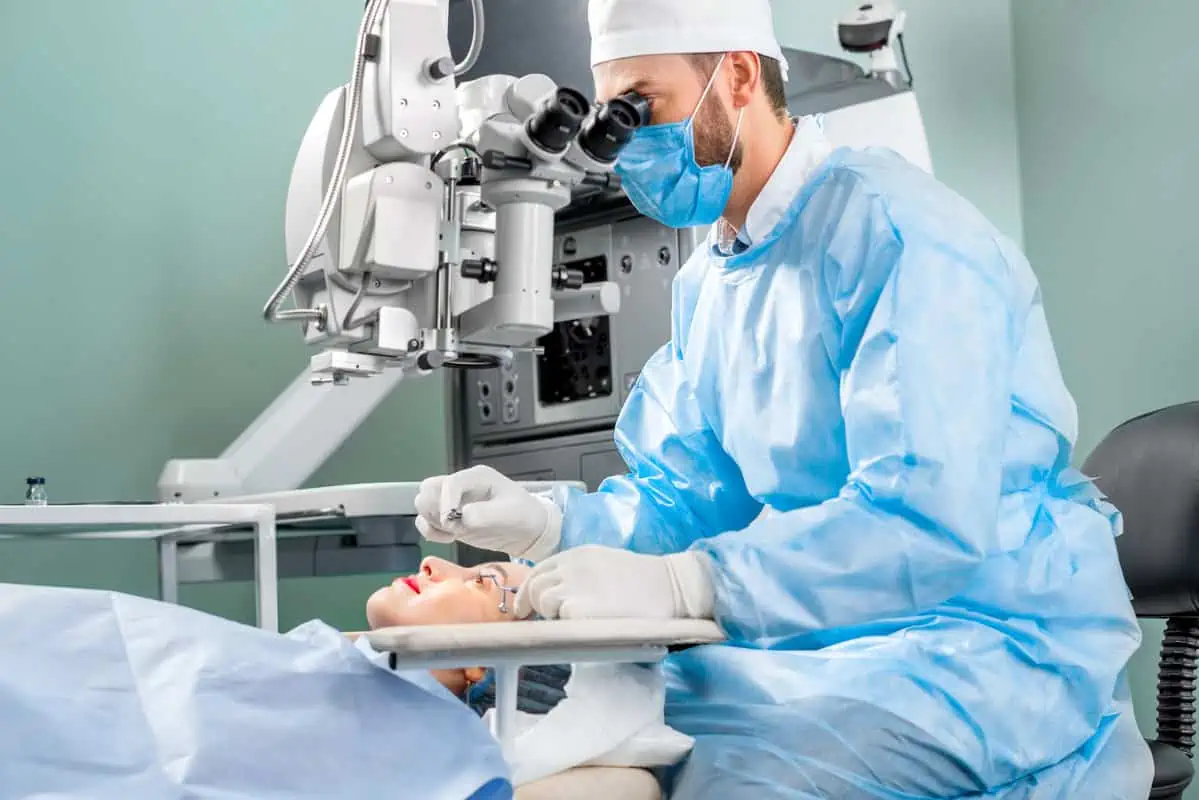
Visit Us Or Call Us Today
SCHEDULE YOUR APPOINTMENT WITH OUR EXPERT TEAM NOW

You may have questions about the surgery ahead if you’ve been diagnosed with cataracts. What is cataract surgery? What can you expect before, during, and after the procedure? In this comprehensive guide, we’ll answer these questions in a simple and jargon-free manner, providing you with all the information you need to prepare for your cataract surgery.
Before diving into the details of cataract surgery, let’s first understand what cataracts are. Typically, cataracts affect older adults. They occur when the eye’s clear lens becomes cloudy, causing blurry vision, difficulty seeing at night, and sensitivity to light. Over time, cataracts can significantly impact your abilities to read, drive, and recognize faces and your quality of life.
To treat cataracts, cataract surgery is a common and highly effective procedure. A clouded lens is removed and replaced with an artificial intraocular lens (IOL). This restoration of clear vision can substantially improve your overall visual quality and help you regain your independence.
Here’s what you can expect at each stage of the cataract surgery process.
Your journey towards cataract surgery begins with a consultation with an ophthalmologist or eye surgeon. During this initial appointment, your eye care specialist will:
Once you and your eye care specialist decide that cataract surgery is the right course of action, you will receive instructions on preparing for the procedure. These instructions may include:
Follow these instructions carefully to ensure a smooth and successful surgery.
Cataract surgery is typically performed outpatient, meaning you won’t need to stay overnight in the hospital. To make the procedure virtually painless, local anesthesia is commonly used. You may also be given a mild sedative to help you relax during the surgery.
Cataract surgery is a highly precise procedure that usually takes 15-30 minutes. The following is a simplified breakdown of what’s involved:
After the surgery, you’ll recover in a recovery area where you’ll be monitored for any immediate complications. You will likely receive eye drops to prevent infection and reduce inflammation. Following your surgeon’s post-operative instructions carefully is essential to reduce complications and promote healing.
Your vision may be blurry immediately after cataract surgery, but this will improve as the eye heals. Some patients report a significant improvement in their vision within the first 24 hours.
Your surgeon will schedule follow-up appointments to ensure your eye is healing as expected. These appointments are crucial for tracking your recovery and addressing any concerns.
In most cases, patients can return to their daily activities within a few days to a week after cataract surgery. However, there are a few important considerations:
One of the most rewarding aspects of cataract surgery is the rapid improvement in vision. Many patients experience significantly clearer vision within days or weeks after the procedure. However, your vision may take a few months to stabilize fully.
While cataract surgery is generally safe and effective, like any surgical procedure, it carries some risks. Complications are rare but can include infection, bleeding, retinal detachment, and a condition called posterior capsule opacification (PCO), which can cause blurred vision. Your surgeon will discuss these risks with you and take steps to minimize them.
Cataract surgery is a life-changing procedure that can greatly enhance your vision and quality of life. You can confidently approach the process by understanding what to expect before, during, and after the surgery. Remember to consult your eye care specialist for personalized guidance and care throughout your cataract surgery journey. Don’t let cataracts hold you back—regain clear vision and enjoy the world around you once more.